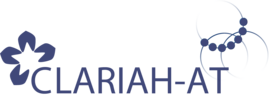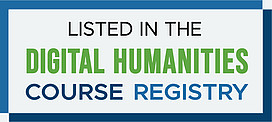Lectures, Tutors and Team

Thierry Declerck
DFKI GmbH
Linked Data in Linguistics
Thierry Declerck is a Senior Consultant at the German Research Center for Artificial Intelligence (DFKI GmbH) since 1996, working in the field of multilingual language technologies. Thierry has acquired a larger number of projects in various fields, like multimedia semantics, information extraction, sentiment analysis (being the overall coordinator of the past European project "TrendMiner"), multilingual knowledge systems, etc. He is now responsible for the DFKI contribution to the recently started "Prêt-à-LLOD" project on "Ready-to-use Multilingual Linked Language Data for Knowledge Services across Sectors" (http://www.pret-a-llod.eu/). Thierry also contributes for the Austrian Center for Digital Humanities to the ELEXIS project (https://elex.is/), especially investigating the role of Linked Data for the representation and generation of lexical data.
Thierry is currently also the Science Communications Manager of the "NexusLInguarum" COST Action "CA18209 - European network for Web-centred linguistic data science".

Darko Hric
Research Ontologist at Novo Nordisk
Darko Hric is a Research Ontologist at Novo Nordisk in Copenhagen, Denmark, where he works on introducing ontologies into early stages of drug research. Previously he worked on Zalando's Fashion Knowledge Graph, a product that helped Zalando navigate the knowledge and terms in the fashion domain. He holds a doctoral degree in Computational Science from Aalto University in Helsinki, Finland, on the topic of community detection in complex networks.
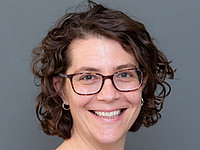
Rebecca Kahn
Alexander von Humboldt Institute for Internet and Society
Working with Recogito, GLAM and LOD
Rebecca Kahn is a researcher at the Alexander von Humboldt Institute for Internet and Society in Berlin, and the Director of Collections at Pelagios. She completed her PhD in Digital Humanities at Kings College London in 2017, and specialises in researching how digitisation changes the ways in which archives and museums approach and manage their collections. She is one of the coordinators of the DARIAH GeoHumanities working group, and is currently working on a project which combines Wikidata, ancient world gazetteers and Asterix comic.
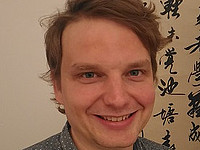
John McCrae
National University of Ireland Galway
Linked Data in Linguistics
Dr. John P. McCrae is a Lecturer Above-the-Bar at the National University of Ireland Galway, whose work has focused on the intersection of NLP and data science, and has lead the development of the linguistic linked open data cloud, a large-scale integration of many language resources. He received his PhD for the National Institute of Informatics in Tokyo, Japan and worked as a post-doc under Prof. Dr. Philipp Cimiano until 2015, working on the Monnet, PortDial and Lider projects. He is currently the coordinator of the Prêt-à-LLOD project on making linguistic linked open data ready-to-use. as well as a work package leader in the ELEXIS project on a European Lexicographic Infrastructure.
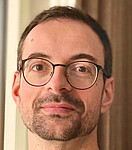
Albert Meroño Peñuela
King’s College London
Knowledge graphs, Web querying, Digital Humanities
Albert Meroño Peñuela is Lecturer and Assistant Professor in Computer Science at the Distributed Artificial Intelligence group at King’s College London. Previously he was a postdoctoral researcher at the Knowledge Representation & Reasoning group, Vrije Universiteit Amsterdam. Albert Meroño Peñuela investigate the construction and querying of knowledge graphs and their role in scholarly processes (https://www.albertmeronyo.org/).

Christopher Pollin
University of Graz
Web of Data Stack - Identifying standards and technologies
Holds a Bachelor degree in History and a Joint Master’s Degree in Digital Heritage (EuroMACHS). Currently he is a PhD candidate in Digital Humanities. Since 2016 he has been a research assistant at the Centre for Information Modelling (ZIM) at the University of Graz. His work in technical development and data modelling includes the following projects: STEFAN ZWEIG DIGITAL, in cooperation with the Literature Archive Salzburg; ‘Open Access Database Adjective-Adverb Interfaces in Romance’, in cooperation with the Institute for Romance Studies of the University of Graz; and ‘Digital Edition Publishing Cooperative for Historical Accounts’ with partners in the USA. The main focus of his work is on semantic web technologies, information retrieval, and web programming. In addition to teaching in these fields, his dissertation project focuses on information-based retrieval and discovery for research data in the humanities.

Matthias Schlögl
Austrian Academy of Sciences
Querying the web of data
Is a researcher at the Austrian Centre for Digital Humanities (ACDH) and a PhD candidate at the University of Bath (UK). For the past 10 years he has worked on the digital parts of SSH projects at the University of Bath, the Social Science Research Centre Berlin, the University of Aarhus and the ACDH. His research focuses on the modelling, enrichment and analysis of prosopographical data. For this end he has together with colleagues published several software components and libraries. At the ACDH he is currently working on the Austrian Prosopographical Information System (APIS), the History of the Austrian Academy of Sciences (PAAS), a project that provides historical shapefiles (HistoGIS) and a webservice for NLP tasks (spacyapps).
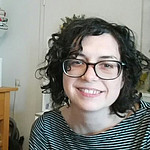
Gerlinde Schneider
University of Graz
Web of Data Stack - Identifying standards and technologies
Is a technical coordinator and software developer at the Centre for Information Modelling at the University of Graz. Since 2012, she has been involved in various research projects in the field of language technologies as well as digital scholarly editions. Currently, she is coordinating the establishment of a CLARIN Centre at the University of Graz as well as the realization of the project “Open Access Database "Adjective-Adverb Interfaces in Romance” funded within the Open Research Data Pilot program by the Austrian Science Fund. Within this project, she is investigating ways of producing FAIR linguistic research data, also by the use of semantic technologies and linked open data. In practice, she specializes in web engineering with a focus on client-side web applications and data curation. Her research interests lie in the areas of linked data and interoperability as well as the implications of software use in humanities research.

Rainer Simon
AIT Austrian Institute of Technology
Working with Recogito, GLAM and LOD
Rainer Simon is a Senior Scientist at the Digital Insight Lab at the AIT Austrian Institute of Technology. He has been working in the field of multimedia information management and retrieval for more than 15 years, with a particular focus on technologies and user interfaces that process and visualize geospatial information. Presently, Rainer serves as the Technical Director for Pelagios, and is also the technical lead for the open source project Recogito, an online annotation environment for texts and images.

Christian Steiner
University of Graz
Linked Data Curation using Open Refine
Education: Master in "Translation" English, Bosnian/Croatian/Serbian, Joint-Master EuroMACHS (Digital Humanities) at the Centre for Information Modelling Graz.
Christian Steiner is a research assistant in the projects "Cantus Network" and "CoReMa - Cooking Recipes of the Middle Ages" at ZIM Graz and responsible for the implementation of the digital and print editions of the liturgical-musical sources from the metropolitan province Salzburg and the medieval recipes. He is particularly concerned with methods of semantic modelling and possibilities for the application of Semantic Web technologies.
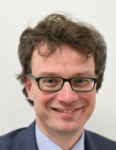
Georg Vogeler
University of Graz
Opening lecture, Knowledge Representation and Ontologies
Georg Vogeler studied Historical Auxiliary Sciences in Freiburg (Brsg.) and Munich.. His research interests are in the field of late medieval administrative records, diplomatics of the charters of Frederic second, digital diplomatics, digital edition and application of sementic web technologies to humanities research questions. In these fields he received several international grants. He studied and worked in Munich and Italy. Since 2011 he employed at Graz University at the Zentrum für Informationsmodellierung – Austrian Centre for Digital Humanities, and since 2016 full professor for Digital Humanities. Georg Vogeler is founding member of the Institut für Dokumentologie und Editor
(http://www.i-d-e.de), technical director the monasterium-consortium (http://www.monasterium.net) and member of the board of directors of the Austrian Centre for Digital Humanities at the Austrian Academy of Sciences.
Tutors
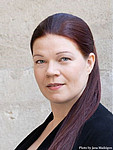
Vera Maria Charvat University of Graz
(ZIM) & Austrian Academy of Sciences (ACDH-CH)
Vera Maria Charvat has a master's degree in Musicology (University of Vienna) and has worked as a freelancer for various projects at the Austrian Academy of Sciences (e.g. Cantus Network). Since 2019 she is enrolled in the master's programme "Digital Humanities" at the University of Graz (ZIM-ACDH), where she is currently employed as a student assistant. In addition to that she has started working as a Data Analyst for the research project InTaVia (https://intavia.eu/) at the Austrian Centre for Digital Humanities and Cultural Heritage (ACDH-CH) in March 2021.
Alongside her interests as a music historian specializing in plainchant manuscripts she is focusing her DH studies on digital editions and semantic web technologies.
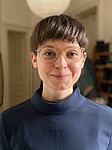
Carla Ebel
Austrian Academy of Sciences (ACDH-CH)
Carla Ebel has a Bachelor's degree in European Art History and Religious Studies from the University of Heidelberg. Since 2019, she studies a master's program Digital Humanities at the University of Graz (ZIM).Carla Ebel worked in the field of archive for Maria Lassnig Foundation in Vienna and University of Heidelberg. Most recently, she started working as a Data Analyst at the Austrian Centre for Digital Humanities. Her interests in DH are semantic web technologies, exhibition databases and various aspects of digital art history and museology.
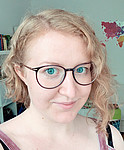
Elisabeth Raunig
University of Graz
Bachelor in History and Master in Digital Humanities at the Centre for Information Modelling Graz. Elisabeth Raunig is a project assistant in the projects "Kofler intermedial" and "DITAH-Digital Transformation of the Austrian Humanities". In the course of these projects she is responsibile for the digital edition of Werne Koflers audioplays and the implementation of the critical commentary to the audioplays; as well as the developement of a Tutorial Platform for ZIM and GAMS Workflows and the knowledge transfer in DITAH. She recently finished her master degree and focused her master thesis on the RDF-representation of medieval calendar data and the developement of "Grotefend - digital".
Organizing committee
Christopher Pollin
University of Graz
Holds a Bachelor degree in History and a Joint Master’s Degree in Digital Heritage (EuroMACHS). Currently he is a PhD candidate in Digital Humanities. Since 2016 he has been a research assistant at the Centre for Information Modelling (ZIM) at the University of Graz. His work in technical development and data modelling includes the following projects: STEFAN ZWEIG DIGITAL, in cooperation with the Literature Archive Salzburg; ‘Open Access Database Adjective-Adverb Interfaces in Romance’, in cooperation with the Institute for Romance Studies of the University of Graz; and ‘Digital Edition Publishing Cooperative for Historical Accounts’ with partners in the USA. The main focus of his work is on semantic web technologies, information retrieval, and web programming. In addition to teaching in these fields, his dissertation project focuses on information-based retrieval and discovery for research data in the humanities.
Gerlinde Schneider
Austrian Academy of Sciences
Gerlinde Schneider is a technical coordinator and software developer at the Austrian Centre for Digital Humanities and Cultural Heritage of the Austrian Academy of Sciences and at the Centre for Information Modelling at the University of Graz. Since 2012, she has been involved in various research projects in the field of language technologies as well as digital scholarly editions. Currently, she is coordinating the establishment of a CLARIN Service Providing Centre at the University of Graz as well as the realization of the project “Open Access Database "Adjective-Adverb Interfaces in Romance” funded within the Open Research Data Pilot program by the Austrian Science Fund. Within these projects, she is investigating ways of producing FAIR linguistic research data, also by the use of semantic technologies and linked open data. In practice, she specializes in web engineering with a focus on client-side web applications and data curation. Her research interests lie in the areas of linked data and interoperability as well as the implications of software use in humanities research.
Tanja Wissik
Austrian Academy of Sciences
Tanja Wissik has a background in translation studies and terminology. Currently, she works as a senior researcher and project leader at the Austrian Centre for Digital Humanities and Cultural Heritage of the Austrian Academy of Sciences and teaches information technologies for translators at the University of Graz and DH methods at the University of Vienna. For more details see https://www.oeaw.ac.at/acdh/team/current-team/tanja-wissik/


